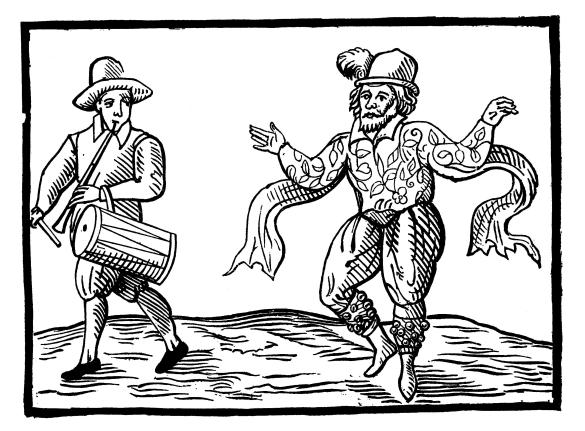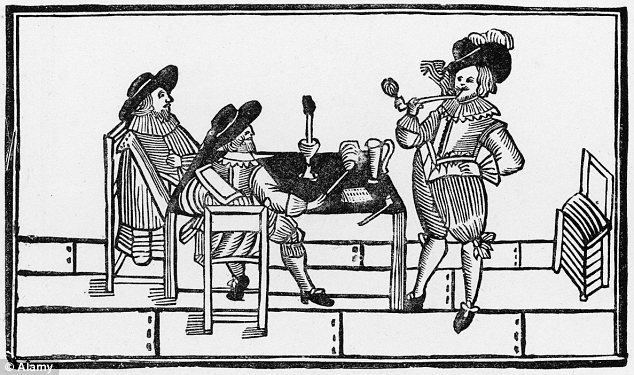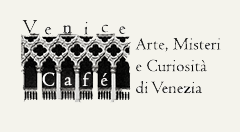First Fruits is John Florio’s first work, published in London in 1578 at 25 years old. Entitled “Florio his firste fruites which yeelde familiar speech, merie prouerbes, wittie sentences, and golden sayings. Also a perfect induction to the Italian, and English tongues, as in the table appeareth. The like heretofore, neuer by any man published.” this work reflects the period of John Florio’s early teaching of Italian in London, when many of his pupils included the young poets and intellectuals of the time.
Dedication
The Dedication of this work is signed from London, 10 August, 1578: “All. mo Et. Ecc. mo Sr. il Roberto Dudleo, Nobil Conte di Licestra, Degno Barone di Denbigh, Cavaljere del Nobil Ordine de la Garatjera, Grand Scudjero, et Consejere de la Serenissima Regina d’Inghilterra, Signor suo Benignissimo.” The book bears an imprint of the Earl’s arms, that could only appear if the author was on the family payroll. The Earl of Leicester was indeed one of the most courted literary patrons of the time. Since John’s father Michelangelo was tutor in Italian to Leicester, Florio pleads that he had handed down to him a feeling of devotion for the Dudley family. It was through First Fruits that Florio hoped to be allowed to enter Leicester’s service:
“Since I am issued from the bowels of him who was your faithful and devoted vassal and have consequently succeeded to the same service and devotion, I would fain be numbered, if it please Your Excellency, among those who serve you with perfect love.” 1
The Epistle Dedicatorie
The dedication follows an “Epistle Dedicatorie” to the Earl of Leicester very similar to the Italian dedication: he addresses him as his lord and seeks his protection from critics as a novice scholar just setting out on his career. Similarly, three more epistles by Florio follow. One is “A tutti i Gentilhuomini Inglesi che si dilettano de la Lingua Italiana”; the second is “Unto the friendly, curteous and indifferent Reader”; and the third is “A tutti i Gentilhuomini e Mercanti Italiani.” The last epistle is in part Florio’s defence of himself against the charges that he was unable to write good Italian because he was not born in Italy, and that he was unfit to teach it because he was not a scholar:
I know some will say how can this man write good Italian and he’s not born in Italy? To them I respond by saying to consider clearly their case, others will say: how is it possible that he knows how to teach grammar, not being learned? To them I don’t know what to say because they tell the truth. 2
In this scenario, sufficient attention has not been paid to the important statement made by John Florio that he was NOT a teacher by profession. This has been taken as being a mere idle distinction made in order to forestall adverse criticism. But, he clearly pointed out that circumstances forced him to adopt this means of earning a living, which should be taken into consideration as they serve to explain many features of his First Fruits. That his attitude towards the study of modern languages was far from that of men like Hollyband is made even more clear in Second Frutes. 3 In fact, it is not purely fortuitous that some of the longest chapters in First Fruits reiterate and exemplify mankind’s debt to literature and to great writers.
The influence of John Florio’s father in First Fruits
Compared with his later manual, First Fruits has a generally dissatisfied tone. Further, the criticisms of the contemporary life are from definitely a Puritan standpoint. Miss Yates finds an explanation of this unusual Florio’s choice:
“A survival of the theological presentation of Italian culture which was uppermost in Michelangelo Florio’s day. It is a determined effort to inculcate a taste for Italian language and literature whilst pointedly avoiding the ‘wickedness’ associated with the new Italian humanism.”4
The literary extracts which Florio quotes – mostly from Guevara, Guicciardini and Sandford – generally have, in fact, a moralising tone. Florio’s first publication reflects the Italian culture during Michelangelo’s era: a desire to implant the delight and pleasure of the Italian culture avoiding references to any salacious content.
John Florio & Leicester’s Men
Eleven prefatory poems precede the text. Four of them, grouped together, are commendatory verses written by the Leicester’s company. They are Richard Tarlton, Robert Wilson, Thomas Clarke, and John Bentley. They thank John Florio for having contributed to bring the Italian novelist to the English theatre. Similarly, other poems are by Richard Hakluyt, Stephen Gosson, I.P., John Cowland, Ri. Collines, T.C. (perhaps Thomas Churchyard) and I.H. (perhaps John Harvey). Also, Stephen Gosson writes a commendatory poem revealing his appreciation of Florio’s methods of instruction.
Robert Wilson in praise of Florio
The pleasant fruites that FLORIO frankly yeeldes, unseene tyl now, saue in Italian soyle:
May quickly florish in our English fieldes,
if in this woorke we take but easie toyle.
He sets, he sowes, he plants, he proynes with paine,
the seedes, and Cienes farre fet from forraine landes:
And genes us (idle) both the stocke and graine,
even his firste fruites the ioy of labouring handes.
We geue hym nought, if we can not deuise
to giue him thankes, that may hym wel suffice.
Richard Tarlton in praise of Florio his labour

If we at home, by Florios paynes may win,
to know the things that travailes great would aske:
By openyng that, which heretofore hath bin a daungerous journey,
and a feareful taske.
Why then ech Reader that his Booke doe see,
Give Florio thankes, that tooke such paines for thee.
First Fruits: Structure
The only surviving copy of the First Fruits is today at the British Museum. It doesn’t have the frontspiece and it’s a volume of 99 pages. The fourtytwo dramatic dialogues of the Firste Fruits are graded, beginning simply and becoming more difficult towards the end. In addition, after the dialogues, there’s a small dictionary of words used: parts of human body, family, days of the week and numbers. The last section of the Firste Fruits consists of a grammar section: “Regole necessarie per indurre gli Italiani a proferir la Lingua Inglese.” These were intended to help Italians to pronounce English. It is very interesting since it is one of the very first example of the English’s pronunciation of the Elizabethan period.
First Fruits:Sources
For his first work, Florio quotes Hore di Ricreatione by Lodovico Guicciardini and Guevara’s Libro Aureo. He also used James Sanford’s translation of Guicciardini’s work of 1573, and Lord Berners’s English translation of Guevara, as well as Thomas North’s version The Diall of Princes. In short, he used all the possible translations available, and edited them, readapting the text in his own personal way. Therefore in the Italian column sometimes he used Portonaris da Trino’s translation adding his own words and alterations. For the English column, instead, he used his own translation taking inspiration from the English versions of Berners and North and Berthault’s French translation.
First Fruits:Themes
Florio is notable for his departures from the usual content of the language lesson manuals, and the Firste Fruits is particularly interesting as an expression of Florio’s observations and opinions on various aspects of London life at the time. For instance, the opinions and many topical allusions are given as the speakers wander through the streets, meet for a meal together, or sit down on a bank for a chat. The variety of topics discussed – fencing, court gossip, Queen’s Elizabeth admirable qualities, the theatre, wine, love – indeed makes the book one of the most interesting of the Elizabethan language lesson manuals. 5
London, court gossip, Queen Elizabeth I
In the first chapter two gentlemen walk through the London streets, exchange galant words with ladies, buy at shops in Cheapside, talk about court-gossips. They also discuss about the news that come from Netherlands and the soldiers who fight against Duke of Alba. Then they talk about the qualities of Queen Elizabeth and how well-trained she is in foreign languages, asserting that “No language is sufficient to praise her enough.” They buy books at St. Paul and wander through the dark roads of the city.
Theatre, Ovid, Pirates
In Chapter XV they talk about England and Florio’s adopted country: a land with “good aire” where he goes to see comedies, tragedies, bears fights, strolling in the countryside or going on boat by the Thames. In another chapter he discusses upon Music and Love. The next one he quotes Ovid‘s opinions on Love. He also mentions criminals, pirates and thieves. Florio’s style is journalistic and gives a vivid and an interesting, precise observations of his time. This book was without any doubt an impressive picture of the Elizabethan’s England.
Cloth & Clothing
Firste Fruits is saturated with discussions of cloth and clothing, and of how they are bought and sold, compared, and circulated. 6
“In the third dialogue, two characters give up on chasing women through London in order to “go and walk in Cheape to buy something”: one seeks “a hat, a payre of white Stockens” (“un capello, un paro di calzette bianche”), while the other wants “a payre of Pantofles and Pumpes” (“un paro di Pantofole e Scarpine”). They discuss prices, they sniff perfumed gloves, and they compare the color of their garters and stockings. […] Later, a character on his way to the Exchange lists some of the fashionable items one might find there: “I wil buy a Hat, a Cappe, a Girdle, a Doblet of Tafeta, Velvet, Grograyne, Satten, Makadowe, Chambelot, white, redde, greene, yallowe, blewe, russet, and blacke.”7
Florio also makes use of metaphors drawn from the (immigrant- heavy) cloth trade:
“Now let us see, if al the colours you have, are able, of naturall Englishmen, to dye us into artificial Italians.” 8
Philosophical Themes
Florio treats different philosophical themes as well. In Chapter 36 he discusses about social injustice:
“Going thorow the world, I have seene, that the seditious command the peacible, the proud command the humble, the tirant the just, the cruel the pitiful, the dastard the hardy, the ignorant the prudent: I have seene the worst theeves hang the most innocent….Nowe wee see some govern soules in Churches that are not sufficiente to governe sheepe in the mountaines, and that this be true, we see the effect thereof dayly, for such Prelates doo not governe, but morre: they do not helpe, but offende: they do not resist enimies, but rather yeld the innocent into their handes: they are not judges but tyrants: they are not clemet but hangmen: they doo not keep the lawes, but fynd newe tributes: they do not raise the good, but raise the bad: these are the Bishops of our Popedome.” – pg. 81
Chapter 18 discusses the virtue of wines:

“Sir, I wil tel you the truth, I love beere, I love aale, but I love a cuppe of wine beste of all: for, as Plinie saith, wine so it be moderately used, is a thing ordeined of God, the wine doth quench the thirst, revive the spirits, comfort the hart, sharpen the wyt, gladden a doleful mind, maketh a good memorye, killeth yl humors, maketh good blod…” pg. 28
First Fruits: Proverbs
The fine sayings, proverbs, pretty demands, diverse sentences, divine and profane, and many other witticisms were calculated to amuse and delight. 9
“But yet tel me also thing that I wil aske you,if you can, What is the heavyest thing?
That I can tel you by experience, for I have prooved it, the heviest thing that is, as I beleeve, is one Etcetera, for if it take you by the way, you can not carry it farre, one foot more.
Which of these three thinges is strongest, either wine, or women, or els the truth? Of curtesie tel me.
To tel you the truth, after my foolish opinion, and not being learned, Truth, me thinketh is strongest. So thinke I also, because the other two may lightly be overcome.” – Chapter 21
The use of proverbs as natural embellishments to the language is one of the outstanding features of the book. Often whole dialogues are carried on proverbs, counter-proverbs, and fine sayings.
“I know wel that you can rehearse some fine sayings.
Sithens that you are so importune, I will begyn, but beware if I erre, I pray you pardon me.
Who offendeth not, lightly is pardoned, begin where you list.
The fayrest thing to adorne a Prince, is loyaltie.
Verily, this is true.
In a clerkle, humiltie.
So saith the Philosopher
In a Prelate Wisedome…
In a rich man, liberalitie.
If you had sayde avarice, that you should have found, for you shal sooner see the fishe flye, then a riche man liberal.” pg. 35
It should be noted, however,that Florio did not believe in using proverbs only as “gems” or just for the external ornamentation of literary style. Rather, he sought to enrich the language by weaving proverbs into common speech so that expression would come spontaneously and gracefully.
“All that glistereth is not gold…” pg. 32
“More waters flows by the mill than the miller knows…” pg. 34
“When the cat is abroad the mice play…” pg. 33
“He that maketh not, marreth not…” pg. 26
“An ill weed groweth apace..” pg. 31
“The end maketh all men equal..”pg. 31
“Make of necessity virtue” pg. 32
“That is quickly done, that is done well…” pg. 27“Give losers leave to speak” pg. 33
“It is Labour lost to speak of love” p. 71
“Necessity hath no law” pg. 31
“A gallant death doth honour a whole life” pg. 34
Comic Devices
Similar to proverbs are the syllogisms and witty sayings as comic devices.
Wel, tel me which is the oldest thing that is.
Truely, I know not. I pray you tel me.
God is the oldest thing.
But how prove you that?
Because he hath alwayes ben, & never had beginning…
You have not erred: but tel me, what is the swiftest thing that is?
The swiftest thing that is, I believe it be the mynd of man, for in a moment
He is here, and now he is there, now in one place, now in another. – pg. 37
First Fruits: English language
As an apostle of Renaissance culture in England, Florio encouraged the study of foreign languages, which was a practical necessity for merchants, travellers and diplomats. Florio was probably right in his comments on the uselessness of the English tongue outside of England.10
What thinke you of this English tongue, tel me, I pray you?
It is a language that wyl do you good in England, but passe Dover, it is woorth nothing.
It is not used then in other countreyes?
Not sir, with whom wyl you that they speake?
With England merchants.
English merchants, when they are out of England, it liketh them not, and they doo not speake it. pg. 50
Florio goes on to speak of how English “is a language confused, bepeesed with many tongues”. He then laments about how little accomplished the English are linguistically:
“…few of these English men delight to have their chyldren learne diverse languages, which thinge displeaseth me. When I arrived first in London, I coulde not speake English, and I met above five hundred persons, afore I coulde find one, that could tel me in Italian, or French, where the Post dwelt.” pg. 51
He also criticizes the way English learn languages:
And what would you have them doo? learne languages?
Yea, sir, and bring up their children well, and have them taught to reade, write, and speake divers languages, and not do, as many of these English Gentlemen doo, that I know.
And what doo they?
I see certaine Gentlemen, rather lownes, to tel the truth, that begyn to learne to speake Italian, French, and Spanish, three woords of French, and foure words of Italian, they thinke they have yenough, they wyll study no more.
First Fruits: Plurilingualism
John Florio’s dialogues, beside teaching the Italian language, were intended to aid the student in original composition. His intent in the careful, ornamental and euphuistic style is to lead up to a refinement and polish in the student’s English style.
In addition, Florio’s plurilingualism can be observed already in his Firste Fruits. In chapter 43, for instance, he lists some 400 Italian words with their English equivalents. Among them, many of them are regionalisms suggest his exposure to the dialects of Val Bregaglia and Northern Italy. 11
First Fruits was the first step of Florio’s career in which his strong style, made of brilliance in form and richness of vocabulary, is already visible, and will later affirm him as an ingenious writer.
Bibliography:
- Del Re, A. Florio’s First Fruits, Facsimile Reproduction of the Original Edition II, Introduction and Notes, 1936, XVIL.
- Gallagher, J. The Italian London of John North: Cultural Contact and Linguistic Encounter in Early Modern England, Renaissance Quarterly, 2017, 70 (1), pp. 88-131.
- Hermann, W. H. John Florio: A Worlde of Wordes, Introduction, Florio the reader and lexicographer, University of Toronto Press, 2013.
- Simonini, R. C. Italian Scholarship in Renaissance’s England, Chapel Hill, 1952
Notes
- “Massime per esser io uscito de le viscere di chi v’è stato fedel, e divoto Vasssallo, e per conseguente essendo io restato Successore de la medesima servirtù, e divotione: vorrei pjacendo così alla E. V. esser nel numero de quelli che con perfetto amore vi servono.” John Florio, Firste Fruites, 1578.
- Só bene che alcuni diranno come pvò scriver costui bvon Italiano? & non é nato in Italia? á qvelli rispondo che considerano bene i fatti svoi, alcuni altri diranno, come é possibile che costui sappja dar regole & non é dotto? à qvelli non só che dire perche dicono la veritá.
- Del Re, A., Florio’s First Fruits, Facsimile Reproduction of the Original Edition II, Introduction and Notes, 1936, XVIL
- Yates, F., John Florio, The Life of an Italian in Shakespeare’s England, p. 36
- Simonini, R. C. Italian Scholarship in Renaissance’s England, Chapel Hill, 1952, pp. 59.
- Gallagher, J. The Italian London of John North: Cultural Contact and Linguistic Encounter in Early Modern England, Renaissance Quarterly, 2017, 70 (1). pp. 88-131
- Gallagher, J. (2017) The Italian London of John North: Cultural Contact and Linguistic Encounter in Early Modern England. Renaissance Quarterly, 70 (1). pp. 88-131
- Florio, John, First Fruits, 1578, p. 106.
- Simonini, C., Italian scholarship, cit., pg. 90
- Ivi, pg. 93
- Hermann, W. H., John Florio: A Worlde of Wordes, Introduction, Florio the reader and lexicographer, University of Toronto Press, 2013




